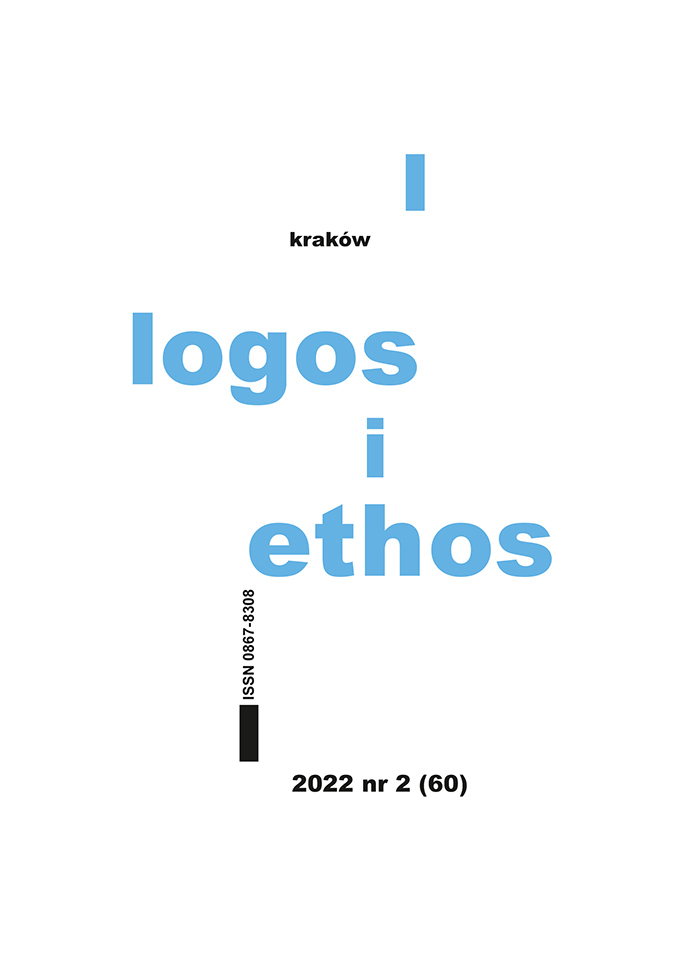Adam Węgrzecki’s Phenomenology as the Key to Understanding Man
DOI:
https://doi.org/10.15633/lie.60202Keywords:
phenomenology, anthropology, identity, personal subject, axiologyAbstract
The article present the work of Adam Węgrzecki, who used the phenomenological method. His scientific interests were closely related to anthropology. The paper presents the following issues: conditions of identity formation, personal properties, axiological pillars of identity and the impact of the axiological profile of a personal subject on its identity. Adam Węgrzecki, with his own sense and responsibility, worked out a method of as complete a phenomenological description as possible, which deserves to be accorded high philosophical competence. All the topics he dealt with, even if they did not concern anthropological issues, assumed a certain vision of anthropology as a science based on the phenomenological method in the background.
References
Duchliński P., Fenomenologiczna antropologia Adama Węgrzeckiego. Uwagi metateoretyczne, „Kwartalnik Filozoficzny” 46 (2018) z. 2, s. 37–56.
Leary M. R., The Curse of Self, Oxford 2004.
Neckar J., Osobowość człowieka – specyficznie ludzkie aspekty jej struktury i funkcji, w: Pamięć, osobowość, osoba. Księga jubileuszowa dedykowana Profesor Annie Gałdowej, red. A. Tokarz, Kraków 2011, s. 123–134.
Tischner J., Etyka wartości i nadziei, w: Wobec wartości, red. J. Tischner, J. A. Kłoczowski, Poznań 1982.
Węgrzecki A., Aksjologiczne uwarunkowania tożsamości człowieka, w: Pamięć, osobowość, osoba. Księga jubileuszowa dedykowana Profesor Annie Gałdowej, red. A. Tokarz, Kraków 2011, s. 31–41.
Węgrzecki A., O poznaniu drugiego człowieka, Kraków 1992.
Węgrzecki A., Perspektywy fenomenologicznej antropologii, „Fenomenologia” 7 (2009), s. 105–118.
Węgrzecki A., Wokół filozofii spotkania, Kraków 2014.
Węgrzecki A., Założenia i perspektywy fenomenologicznej antropologii, „Zeszyty Naukowe / Uniwersytet Ekonomiczny w Krakowie” (2012) nr 882, s. 47–56.
Węgrzecki A., Zarys fenomenologii podmiotu, Kraków 1996.
Downloads
Published
Issue
Section
License

This work is licensed under a Creative Commons Attribution 4.0 International License.
Authors who publish with this journal agree to the following terms:
- Authors retain the copyright and full publishing rights without restrictions, and grant the journal right of first publication with the work simultaneously licensed under a Creative Commons Attribution 4.0 International License that allows others to share the work with an acknowledgement of the work's authorship and initial publication in this journal.
- Authors are able to enter into separate, additional contractual arrangements for the non-exclusive distribution of the journal's published version of the work (e.g., post it to an institutional repository or publish it in a book), with an acknowledgement of its initial publication in this journal.
- Authors are permitted and encouraged to post their work online (e.g., in institutional repositories or on their website) prior to and during the submission process, as it can lead to productive exchanges, as well as earlier and greater citation of published work (See The Effect of Open Access).

